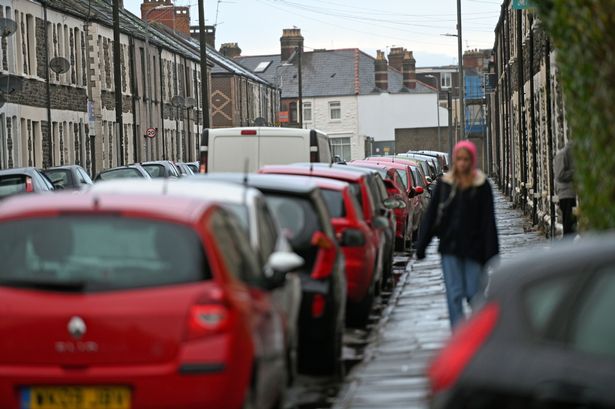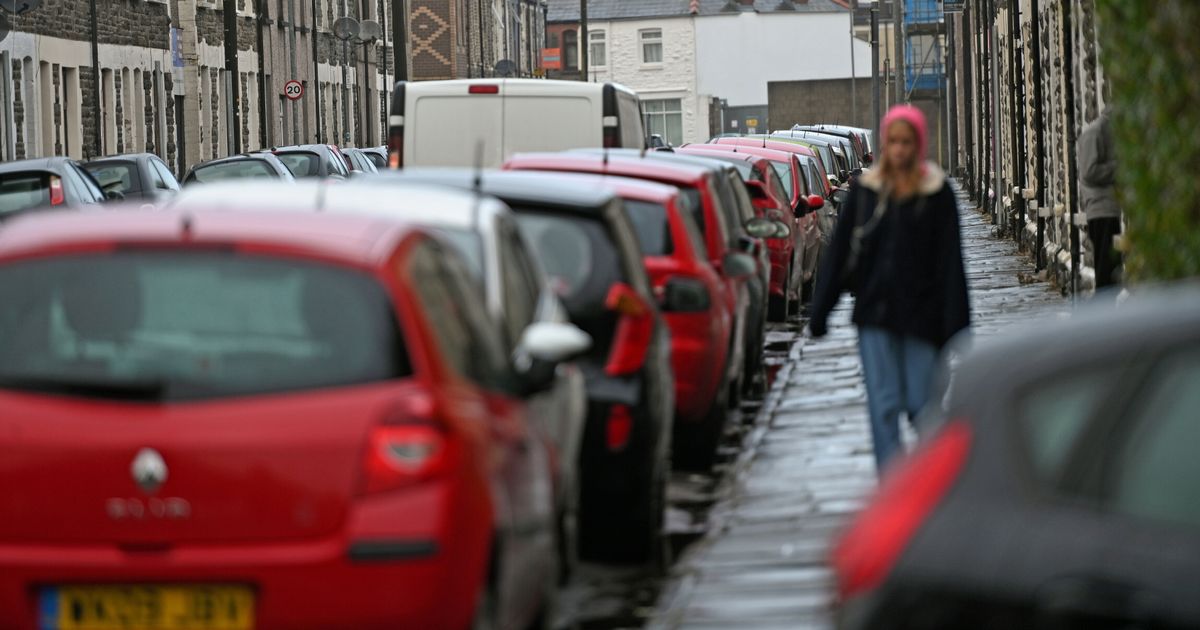Cardiff Council recently approved plans to overhaul parking in the city which will include a surcharge for larger and more polluting vehicles
16:25, 16 Oct 2025Updated 11:51, 17 Oct 2025
 Some electric cars and Land Rovers will be affected by a new surcharge on larger vehicles coming to Cardiff(Image: Richard Swingler)
Some electric cars and Land Rovers will be affected by a new surcharge on larger vehicles coming to Cardiff(Image: Richard Swingler)
Some electric vehicles and Land Rovers are among the cars that will be affected by a new parking premium on large vehicles coming to Cardiff. The city parking plan, approved by Cardiff Council’s cabinet on Thursday, October 16, is aimed at reducing commuter parking and encouraging the use of sustainable transport.
A key element of the plan will see the city split into different parking zones with their own parking rules.
However it will also see city wide restrictions brought in like a surcharge on larger and more polluting vehicles. Never miss a Cardiff story by signing up to our daily newsletter here.
A council report on the city parking plan states that “large heavy vehicles take up more parking space and are a danger to other road users”.
It is hoped that the surcharge, which will affect vehicles over 2,400kg in revenue weight, will encourage drivers to switch to smaller modes of transport.
‘Revenue weight’ essentially refers to the gross weight of a vehicle. That is the weight of a vehicle when it is loaded to its maximum capacity with passengers, luggage, fuel, and other fluids.
You can find the revenue weight of your car on the DVLA website.
In time the council said the surcharge will be reduced 2,000kg for non-electric cars vehicles.
Very large vehicles that are over 3,500kg in revenue weight will not be entitled to parking permits.
Here are some of the cars that will be affected by the council’s surcharges:
⦁ 2025 Skoda Enyaq (electric) – revenue weight of 2,650kg
⦁ 2025 BMW iX (electric) – revenue weight of 2,703kg
⦁ 2024 Audi Q4 e-tron (electric) – revenue weight of 2,660kg
⦁ 2022 Range Rover D350 – revenue weight of 2,504kg
⦁ 2022 Range Rover Sport – revenue weight of 2,810kg
⦁ 2018 Jeep Wrangler – revenue weight of 2,585kg
⦁ 2025 Skoda Kodiaq – revenue weight of 2,500kg
⦁ 2023 Mercedes-Benz GLS – revenue weight of 3,420kg
⦁ 2024 Land Rover Discovery – revenue weight of 2,529kg
As well as these cars, many common people carriers used by larger families are heavier than 2.4 tonnes. Any Volkwagen Sharan model since 2010 weighs 2,510kg revenue weight. Ford Galaxy vehicles also have a gross vehicle weight of between 2,415kg and 2,585kg depending on the age of the car.
Cardiff Council’s cabinet member for climate change, strategic planning and transport, Cllr Dan De’Ath, said the local authority’s surcharge is aimed at big “American-style” SUVs that are “much larger than your average car”.
The council’s targeting of larger cars is also linked to road safety.
Cllr De’Ath said at Thursday’s cabinet meeting the chance of a child dying is “grossly inflated” if they are hit by a large SUV.
He added: “We don’t think it is unreasonable for drivers of those vehicles to have to pay a little more.”
Diesel vehicles will also be affected by a surcharge with Cardiff Council saying these release more health-damaging nitrogen oxides and particulate matter than petrol vehicles.
Vehicles which are Real Driving Emissions 2 (RDE2) compliant will be exempt from this surcharge as they are seen to produce significantly fewer harmful pollutants.
Cardiff Council hasn’t said exactly how much the surcharge will but there have been indications it is considering doubling the cost of a £35 annual permit for heavy vehicles. A report published recently by the local authority states that costs associated with parking permits and other tariffs will be consulted on as part of a Traffic Regulation Order (TRO) process.
Another council report on the city parking plan stated that fees and charges will be reviewed every two financial years.
A Cardiff Council spokesperson said “Cabinet has approved the principle of an additional charge for residential parking permits for vehicles weighing over 2.4 tonnes. These heavier vehicles typically produce more emissions, cause greater wear and tear on roads, and critically pose a significantly higher risk in the event of a road traffic collision. To illustrate, a 10-year-old child struck by an SUV is three times more likely to die in a road traffic collision compared to being hit by a standard-sized car.
“The current cost of a residential parking permit for the first vehicle in Cardiff is £35 per year. Even if this charge were doubled for vehicles over 2.4 tonnes, the cost would remain negligible in comparison to the purchase price of such vehicles.
“Revenue generated from this charge will be used to help implement the new Parking Plan across the city. Any surplus income would be ring-fenced for investment in other transport projects.
“The Parking Plan will be implemented over a ten-year period, the increase in cost for a parking permit for a car over 2.4 tonnes will be calculated following consultation with the public through the Traffic Regulation Order (TRO) process.”
